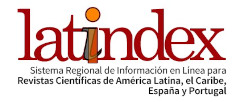ELEMENTS OF SUCCESS IN SOLIDARY ECONOMY VENTURES
THEORY AND REALITY IN THE CONTEXT OF SELECTIVE GARBAGE COLLECTION
DOI:
https://doi.org/10.54399/rbgdr.v20i3.6600Palabras clave:
Self-management, Heteromanagement, Solidarity economy, Waste, CooperativismResumen
The gap in this research is related to the identification of the successful elements that govern the actions and activities of solidary enterprises, in parallel with what has already been proposed in the literature, using selective garbage collection cooperatives and associations as a basis. Thus, the question of this research questioned whether cooperatives and associations of selective garbage collection present elements of success due to the integral observation of the basic principles proposed for projects with solidary characteristics, already proposed in the literature. The objective points to the investigation of the guiding principles of solidary enterprises and their comparison with the perceived success elements. Therefore, this research is characterized as being of an applied, exploratory, and descriptive nature, with a qualitative approach, whose field of study involved fifteen associations and cooperatives located in the fifteen municipalities of Paraná bathed by the reservoir of the Itaipu Hydroelectric Plant, in the western region of the state. Fifteen interviews were carried out, and from the content analysis, with the help of the Iramuteq software, it was possible to diagnose the regional reality and prove that these projects are not supported by the basic principles proposed by the literature on solidarity projects, but their true elements of success point to formalization, public policies, interpersonal relationships, production, leadership, popular support, and financial security. This research showed that the theoretical principles proposed for the effective characterization of solidary economy enterprises are, at least in this region and in this context, being replaced and considerably rooted by new elements of success.
Descargas
Publicado
Cómo citar
Número
Sección
Licencia
Derechos de autor 2024 RBGDR

Esta obra está bajo una licencia internacional Creative Commons Atribución-NoComercial 4.0.
Os autores que tiverem seus trabalhos aceitos e publicados na Revista Brasileira de Gestão e Desenvolvimento Regional estarão sujeitos a política de direitos autorais CC https://creativecommons.org/licenses/by/4.0/.
Em caso de aceite do artigo para publicação, os direitos autorais são automaticamente cedidos para a Revista Brasileira de Gestão e Desenvolvimento Regional.

















